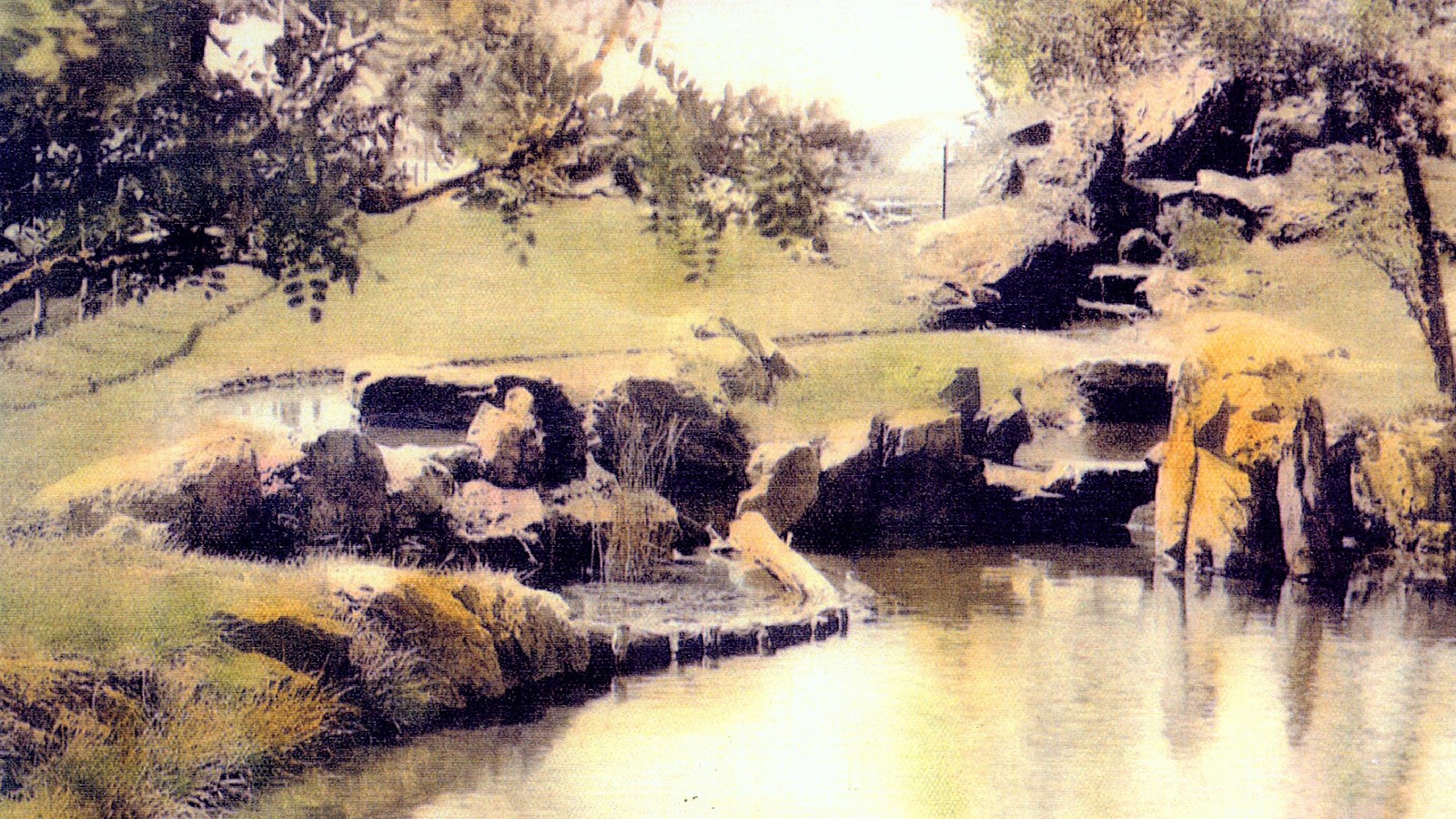Last updated: January 25, 2023
Place
Block 34 Garden, Manzanar

Courtesy of Toyo Miyatake Studio
Benches/Seating, Historical/Interpretive Information/Exhibits
Water once flowed over the silent stones, of San-shi-en, or 3-4 Garden, soothing troubled spirits and easing the monotony of long mealtime lines. Designed and built by those incarcerated, mess hall gardens served as a source of block identity and pride.This and other gardens in Blocks 9, 12, and 22, share symbolic roots in ancient Japanese design. In each, you can find three distinct levels aligned north to south: a hill of earth represents the mountains for which water flows south to a pond, symbolizing an ocean or lake. Incarcerated Japanese Americans planted trees from the camp nursery and hauled stones from the rugged Inyo Mountains east of Manzanar.
You can find crane and turtle rocks, which, found together are said to ensure ageless vitality.
“Six months ago Manzanar was a barren, uninhabited desert. Today, green lawns, picturesque gardens with miniature mountains, stone lanterns, bridges over ponds where carp play, and other original, decorative ideas attest to the Japanese people’s traditional love of nature and ingenuity in reproducing beauty in miniature.”
“Best Garden Contest,” Manzanar Free Press, Fall 1942
To hear Ikuo Henry Nakagawa talk about his memories of Block 34 garden, click here.
